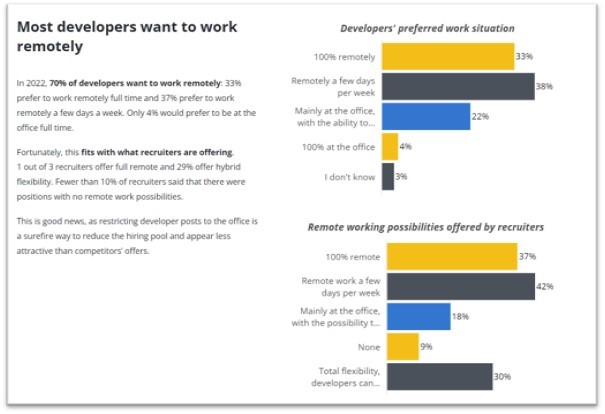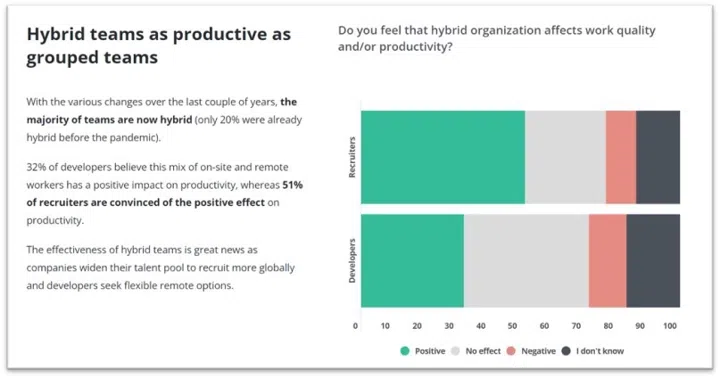Why you should consider remote developers (and other tech skills)
by Greg Bernard
As the demand for tech talent has surged globally, many organizations are struggling to attract and retain the right talent in-house. As such, many are increasingly making use of remote skilled talent to fill the void.
During the COVID-19 global pandemic, remote work has been ‘normalized’, surprising many executives with the positive impact on productivity – especially pronounced in the tech segment. This has resulted in broader acceptability of remote skilled workers, where their physical location is no longer a barrier, opening up talent pools globally.
So why would you consider remote developers to augment your engineering teams ? The below are some of the key benefits which this model can unlock.

To further support this model, a recent survey conducted by CodinGame and CoderPad highlights two key drivers worth considering, for remote developers in particular.
- Developers WANT to work remotely; therefore you are more likely to attract higher skilled developers for remote roles, and;
- Hybrid/Remote teams are at least as productive as on-site teams.
As can be seen in the survey results, 70% of developers want to work remotely. This is supported by 1/3 of roles now being fully remote; according to what recruiters are reporting. It is evident that restricting your potential talent pool to candidates who are within a short radius of your office location, will drastically increase your time-to-hire and cost profile, including making your role less attractive than your competitors.

Further, more than 30% of developers believe that a mix of on-site and remote workers have a positive impact on productivity, as can be seen from the excerpt below.
As can be seen in the survey results, 70% of developers want to work remotely. This is supported by 1/3 of roles now being fully remote; according to what recruiters are reporting. It is evident that restricting your potential talent pool to candidates who are within a short radius of your office location, will drastically increase your time-to-hire and cost profile, including making your role less attractive than your competitors.

In it clear that these hybrid teams combining on-site and remote skilled workers are now mainstream, and team have adapted extremely well to a remote way of working.
This is especially prevalent in the tech sector, with developers in particular enjoying the benefit this model bring.
At IT Workforce, we are seeing huge demand for remote developers and data scientists/analysts in particular.
